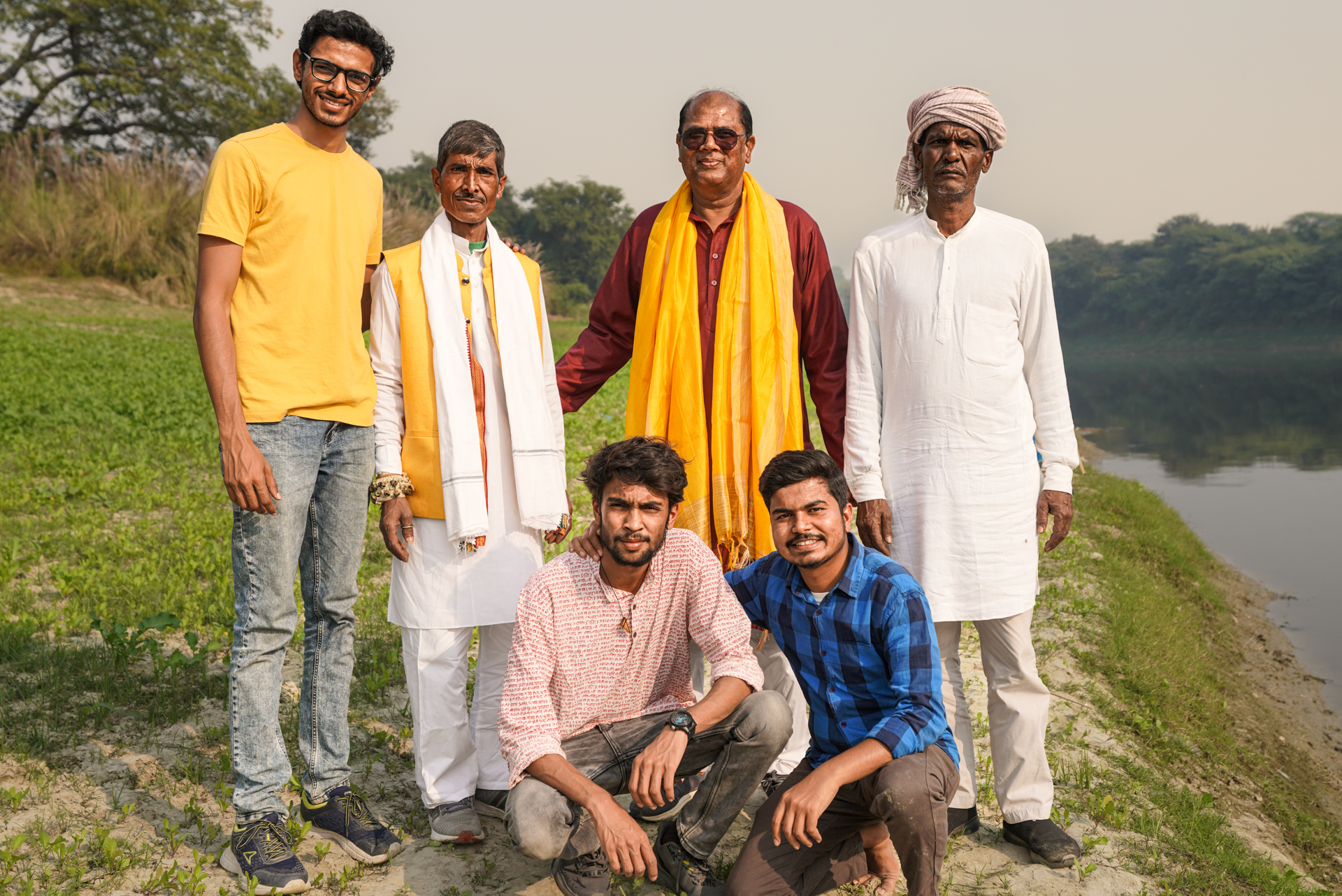
Women’s everyday experiences in Awadhi Folk songs
Uttar Pradesh has a long tradition of folk songs about women’s lives, which are now on the verge of extinction due to changing social circumstances.
Jantsar is a melodious folk song in Awadhi that derives its name from the word jaant, a traditional grinder used to grind wheat into flour. In the olden days, women would wake up early in the morning and grind flour for the day as they had to prepare food before other family members left for work. This work was rather strenuous, and to keep their spirits high and encourage each other, the women would sing songs that eventually came to be known as Jantsar. Of course, today, one is unlikely to hear Jantsar songs being sung even in the remotest villages as electric mills have become so popular everywhere.
Jantsar remains an important cultural heritage for the Awadh region as the songs were about women’s everyday lives and their social problems. The songs talked about the relationships with their husbands, mothers-in-law and other family members and about their love for their work as a homemaker. These songs aren’t that widely known, and few singers sing them now. Rajendra Pandey is a self-taught musician with a keen interest in folk music who has learnt these songs and is working to preserve them.
He belongs to a village named Khanpur Pilai in Sultanpur district of Uttar Pradesh. He works in the Indian Airforce and has a Masters’s degree in political science. Despite an established career in his field, he identifies as a musician and is very passionate about researching dying folk songs of his native Awadh region. He is very attached to his village and home and loves speaking in Awadhi at home and wherever possible. He also sings many other genres like Jantsar in Awadhi.
Traditional history narrates that Jantsar was first composed by Kabir. Kabir was a mystic philosopher and poet from Uttar Pradesh who advocated for the oneness of all humanity and life of bhakti towards the formless, nameless God. As singing bhajans and expressing devotion every day was held so important by Kabir, many women found it difficult to make time from their busy schedules and familial duties to pray every day. Kabir solved this problem by composing Jantsar, which women could sing even when working. Rajendra Pandey clarified that this story is apocryphal, and it is difficult to ascertain the origin of these songs. He has likewise researched several other folk songs extensively and is knowledgeable in this field.
His fellow musicians are also talented and very learned. Dholak player Vijay Kumar can also play the Tabla, Harmonium, Banjo and Sarangi. He is also a well-known singer in his own right and is also a Kathak dancer. He learnt each of those instruments from different teachers, and despite so many years of learning, he feels unfulfilled and hopes to learn more instruments and new music forms. He says that music is a vast, infinite ocean and the deeper one dives into it, the more there is left to learn. The one quality which has helped him master so many arts is restlessness, which he calls fakiri – not to settle and not feel content or satisfied.
Vijay Kumar started learning music and dancing at a very young age and was encouraged by his parents to pursue his interests. He attended and learned for a while Prayag Sangeet Samiti and received a certificate from Rashtriya Kathak Sansthan in Lucknow. Aside from music and performing, he also writes poems and songs under the pen name “Anjaana”. He writes in his native language of Awadhi and Hindi, Urdu and Bhojpuri. He uses many Farsi and Arabic vocabulary in his writings, taking inspiration from famous literary figures like Prem Chand, who wrote about the common folk but used a highly literary language to narrate their stories. He writes on religion and society. He also performs many other folk forms like Chanaini and Kaharwa and teaches music to a few students. Mohammad Islam plays the harmonium alongside Rajendra Pandey. He belongs to Bhawanipur village in the Jaunpur district and comes from a family of musicians. His father was a Sarangi player, and his elder brother was a folk singer.
Rajendra Pandey opines these folk songs and folk music are declining due to technological advancements. The younger generation finds it difficult and pointless to master traditional instruments and instead prefers computer-generated music and instrument simulations. In the past, one generation would teach the next, and so on, and musicians came from families and communities that had practised the art for many generations. Migration to cities in search of better economic opportunities has also contributed to a decline in this tradition. As families break apart and the younger generation moves to the towns and cities, there are fewer people left back in the villages to learn from the elders and preserve the art form.
Despite this, Rajendra Pandey believes that preserving folk music for the coming generation is very important. He calls folk music the ‘aatma’, the soul of a civilisation. The music preserves their history and way of life and gives them a sense of belonging. In the absence of folk music, he fears that the younger generation will feel alienated and there will be a growing cultural gap between the ages, which is detrimental to keeping a community together. Also, along with the folk culture, the indigenous die out, and the literature and history are also forever lost. He believes that this is of grave concern and an essential socio-cultural problem that needs to be brought to large-scale public attention and addressed before it is too late.
